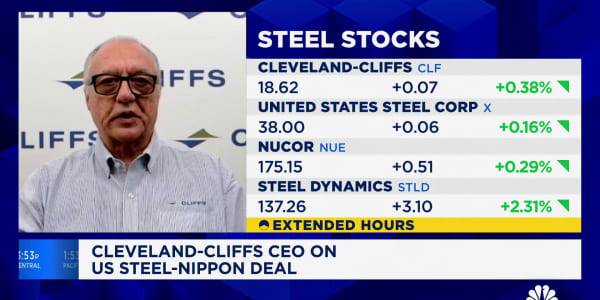Mary Callahan Erdoes, chief executive of JPMorgan's $1.7 trillion asset-management unit, argues that weakness in Europe has been the dominant driver behind the recent volatility in U.S. stock markets.
Since CNBC's Delivering Alpha conference in July, when she stated that Europe looked "fine" and that the U.S. was poised for "a great run," the main change in the broad market picture, Erdoes wrote in a new statement penned late Friday, is "reduced prospects abroad" at the moment.
"The U.S. profit and growth outlook hasn't changed much," Erdoes added, but weak overseas markets "have unsettled equity markets. Markets are repricing to this new reality" and are "now much closer to fair value."
Europe, Erdoes added, is on the verge of its third recession in five years.
Read MoreCorrection possible, but QE end needed: Fed Fisher
Other market leaders and international officials have invoked similar concerns. Earlier in October, International Monetary Fund chief Christine Lagarde pegged the chances of new recession in Europe at 35 to 40 percent, and compared the Eurozone economy to that of Japan. And reports Monday morning of sluggish industrial growth in Europe during the month of August and dipping consumer confidence in the relative stronghold of Germany only added to such fears in the markets.
Indeed, part of hedge-fund manager David Einhorn's presentation at the Robin Hood investment conference in Manhattan on Monday morning was dedicated to his thesis on why France, whose sovereign debt he is short, is weaker than the market appears to think, said a conference attendee. (On the flip side, this person added, he recommended buying the warrants of two Greek Banks, Alpha Bank and Piraeus, saying that they were over-reserved and overcapitalized.)
In Friday's statement, Erdoes added that a scenario like the one she sees now in the markets is hardly new.
Read MoreEU needs risk-takers to compete with US: Kroes
"There have been 73 corrections like this since 1950," she added, "and most come after periods of excessive optimism. This isn't about global deflation; it's more about equity markets that had that good run and it got a bit ahead of fundamentals."






